
Spring, 2022 – Volume 62, Issue 1
Editor: Ada Sinacore, Canada; Associate Editors: Erinn Cameron, USA/Scotland, Polli Hagenaars, Netherlands; Swati Bajpai, India. Production Editor: Merry Bullock
Download as PDF here
Message from the President
ICP News and Activities
- Webinars
- Conferences
- Interest Groups
Behind the Scenes – from the Secretariat
Member Spotlight
- Sharon Coen, UK
- Janine Ray, Canada
Member News, Announcement and Comments
ICP at the United Nations
Student Corner
- Meet the Student Representatives to the Board
Voice of Members – Special Interest Articles
- Mwikali Wakes Up
- We the Women in Antigua and Barbuda and the World
Art/Poetry Corner
- Me too ….
Endnotes
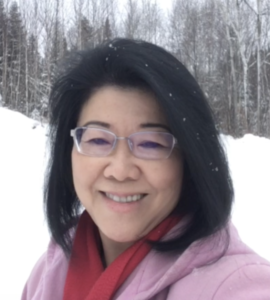
Peace cannot be kept by force; it can only be achieved by understanding.
– Albert Einstein
After 2 years of the pandemic, the world is still not free of the coronavirus. We cannot be faulted if we were looking to have a better year in 2022 as we see many places seeming to have better handle on COVID-19. No one could have anticipated with certainty the unprovoked invasion of Ukraine by Russia in late February of this year. The world is watching with outrage the resultant destruction on cities and civilians, and the humanitarian crisis that it is generating. The ICP, as well as other psychological organizations, have released strong statements against the war (https://icpweb.org/statement-on-ukraine/). We offered certain concrete steps that one can take to support Ukraine and to oppose tyranny such as donation to charities, supporting their government in their sanctions even though such sanctions might require some sacrifice on our part, and working against disinformation and fake news. The rate of exodus of refugees from Ukraine is unprecedented, and the UN refugee agency is anticipating that the number of refugees could be as high as 4 million. Every day, there are new efforts and initiatives being set up to help the refugees, and we encourage everyone to check them out and assist if you can.
As psychologists, we have many opportunities to adopt a human rights perspective in our work. Some of us directly address issues of global concerns that impact on human welfare. For others, the link between their work and human rights might seem less obvious but they are no less important, e.g., research on cultural differences in the deciphering of facial emotions holds relevance for decision-making in high stress situations that involves cross-cultural or cross-ethnic contact. This means that all of us are capable of making the future better for all, and to train future generations of psychologists to follow the same path.
The activities of the ICP are guided by its vision relating to human rights, justice, and dignity. For example, our successful virtual conferences in 2020 and 2021 featured topics of contemporary global concerns – climate justice, disabilities justice, COVID-19 pandemic, health inequity, gender equity, living with uncertainty, democracy and authoritarianism, to name some.
We are currently working on the planning of the 2022 ICP conference which is scheduled for Dec 9-11. So please save the dates! It will be in virtual format because the pandemic situation remains uncertain, and we have found the virtual format to attract a more global audience. We have not sent out any call yet for submissions but it will be coming within the next few weeks.
At this time, the ICP relies almost exclusively on membership dues. We have deliberately kept our dues low, and have adopted a tiered membership fee structure so that we can maximize accessibility by psychologists, allied professionals, and students from different parts of the world. We continue to look for ways to sustain and increase our membership. Please consider renewing your membership if you have not already done so (https://icpweb.org/membership/portal-join-renew/), and help to promote the ICP among your colleagues.
The ICP is run by volunteer members. The amount of time and work that they contribute is substantial. I want to thank the Board, Committee Chairs, and members of committees for their incredible work and commitment. We are always looking for ICP members who would like to play a more active role in ICP. If you have ideas, or would like to help out, we would be delighted to hear from you. You can always reach us at icpincinfo@gmail.com. I extend my best wishes to everyone for a safer and healthier 2022.
Josephine Tan, ICP President
Webinars

ICP/GNPHR Webinars
ICP is pleased to announce its partnership with the Global Network of Psychology and Human Rights in offering a series of webinars on Human Rights and Psychology. The series began with two powerful presentations:
- Human Rights: How do they matter for the profession of psychology?” by Nora Sveaass and Mike Wessells; (January)
- Women and Human Rights: Concepts, Debates, and Implications for Psychology by Shawn M. Burn and Silvia S. Canetto (March)
You can view recordings of each of these webinars and register for upcoming ones at https://icpweb.org/icp-webinars/
The next webinar will be May 16, 2022 and will focus on the rejection of refugees. The title is Flight and Human Rights and the speaker is Uli Wagner from Germany.
ICP Webinars
The first ICP webinar will be April 27th, 2022 with the title Transnational Feminism and Psychology by Natalie Porter & Tugce Kurtis.
ICP in the News
- Koerner, N. & Tan, J. (2021). Human rights, dignity, & justice: 78th annual conference of the International Council of Psychologists. Psynopsis, 43(3), 32,34. https://cpa.ca/docs/File/Psynopsis/2021-Vol43-3/index.html#p=32
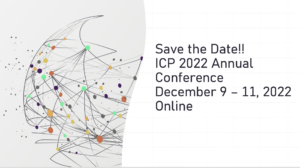
Conferences
- ICP2022 – Annual Conference will be virtual and held December 9-11, 2022. Announcements will be forthcoming – but save the date!
- ICP Regional Meeting Japan (virtual) July 8-9, 2022 on ZOOM. Conference Co-chairs Dr. Machiko Fukuhara and Dr. Naoki Asazuma are organizing a regional meeting that will highlight aspects of psychology in Japan and that will introduce ICP interest groups to foster synergy and collaboration.
- The 2021 ICP virtual conference was well-attended with representation from 24 countries. You can watch sessions with outstanding presenters from around the globe who spoke on pressing issues that our world is facing today.
Interest Groups
The ICP welcomed 3 new special interest groups. You can visit their webpages for more information::
- Decolonizing Psychology, chairs Polli Hagenaars, Élison Santos, & Naomi Koerner
- Latin America & Caribbean Psychology, chairs Naomi Koerner, & Élison Santos
- Health Psychology & Human Rights, chairs Swati Bajpai, Elaine Congress, & Amina Muazzam
They join the two longer standing interest groups: Endangered and Vulnerable People and Health and Wellness from a Cross-Cultural perspectie
Other
- The ICP passed a 5-year Strategic Plan 2022-2026 (https://icpweb.org/about-us/icp-strategic-plan-2022-2026/) after
consultation with the membership. The Board is developing action plans for products and policies to begin implementing the Plan this year.
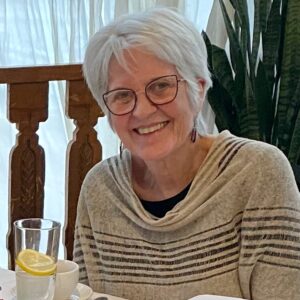
Courage is what it takes to stand up and speak; courage is also what it takes to sit down and listen .. Winston Churchill
If you look at the ICP website, follow its twitter, Facebook or YouTube channel you will see the public face of ICP activities, including webinars, interest groups, conferences, and other activities. But there is a backside too, that includes the work of the Secretariat, as well as ICP’s many volunteer chairs, co-chairs and committee members. The Secretariat takes care of the details of maintaining the organizational structure of ICP – the membership database, financial accounts, rosters, an the like. But it also represents ICP to other organizations, and promotes ICP’s values in support of justice, dignity and equity. In addition, the Secretariat’s work serves as outreach to the discipline and members through support for awards, task groups, and networking. Here is a smattering of what goes on.
Relations with Other Organizations
ICP maintains active engagement with a number of psychology and other organizations. We work as a partner or member, attending meetings and joining in on initiatives.
- Global Psychology Alliance. Beginning in 2019, ICP has been an active member of a most extraordinary grouping that brings together the presidents or executive officers of national psychology associations from around the world for monthly discussion and action. This group has produced several global statements (see under Advocacy on the ICP website), and is now working on an action plan for psychology taking action in climate change. ICP is an active partner, collaborating in writing and in developing a working, strategic plan. Our global and human rights focus brings a unique perspective to this gathering of primarily national associations. Last year the GPA inaugurated a leadership institute in which “established” leaders served as mentors for “emerging” leaders. I served as a mentor for leaders from Sri Lanka; Erinn Cameron and Andy Simon participated with a colleagues from Ecuador and Ukraine.
- International Association of Applied Psychology (IAAP) – ICP and IAAP signed a memorandum of understanding several years ago. Per our agreement, ICP regularly shares information about its activities with IAAP members through their monthly members’ Bulletin. In addition, the two organizations share mutually reduced conference rates.
- WANGO – did you know there is an international association of NGO’s? – the World Association of NGOs. ICP is a member. Notable outcomes from this organization include an NGO Code of Ethics.
- World Federation for Mental Health (WFMH). This grass-roots and professional organization advocates for global mental health and psychosocial interventions. It also is a primary mover of the annual Mental Health Day (October 10) and sets the theme. For 2021 the theme was Mental Health in an Unequal World – the 2022 theme will be announced shortly. The WFMH provides theme-based educational materials for members and others to use in support of their own World Mental Health Day activities.
- PCUN – Psychology Coalition of Associations Accredited to the United Nations. PCUN is a grouping of all the psychology and psychology-related organizations that have NGO status at the UN. It develops educational programs (webinars), statements, outreach, and advocacy with UN Missions and staff. It sponsors the annual Psychology Day at the United Nations which is held each April (see ICP at the United Nations in this issue of the newsletter).
Keeping ICP Current and Legal
As a non-profit organiztaion, based in the USA and accredited at the United Nations, ICP has a number of obligations to fulfil each year. These include filing income taxes as a non-profit, filing an annual report with the state in which we are incorporated (Connecticut), filing reports with the United Nations (the quadrennial report o ECOSOC; biannual report to the Departmnet of Global Communiations), and filing requests for UN badges for our representatives. Despite COVID restrictions, we now have access to these venues.
ICP Outreach and Thank You’s
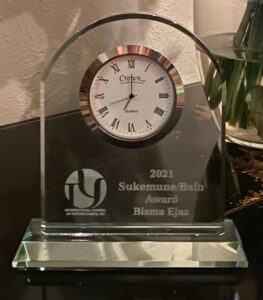 Last year ICP gave prestigious awards to 4 outstanding psychologists – the Fukuhara Award, Frances Mullen Award, Denmark-Gunvald award and the Sukemune Bain award. You can read about the awardees here. In addition to an award check, each recipient also received a special glass ICP clock to commemorate their award.
Last year ICP gave prestigious awards to 4 outstanding psychologists – the Fukuhara Award, Frances Mullen Award, Denmark-Gunvald award and the Sukemune Bain award. You can read about the awardees here. In addition to an award check, each recipient also received a special glass ICP clock to commemorate their award.
ICP also sent a ceramic coaster with the ICP logo – a small token of appreciation – to its conference invited speakers to keep a reminder of ICP close at hand as they work and write!
The ICP mailbox (at 1080 Tantra Park Circle, Boulder CO 80305 for physical mail and icpincinfo@gmail.com for email) is kept busy, especially as membership dues arrive at the start of the year. We are always eager to talk with any and all of you!
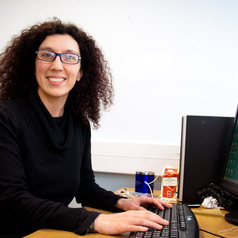
Sharon Coen
University of Salford, U.K.
We are delighted to introduce new ICP member Dr. Sharon Coen and even more delighted that she decided to join ICP! Dr. Cohen was an invited speaker for the Climate Justice Panel for the ICP 2022 conference, where she delivered a talk on her work in climate activism and media psychology. Originally from Italy, she is a senior lecturer in Media Psychology at the University of Salford in the United Kingdom. Trained as a social psychologist, she has developed a passion for media psychology. Since 2011, she has been co-leading the only MSc in Media Psychology in the UK and has been exploring the role of news and political communication in democratic debates around important political issues, such as climate change. Her research focuses on the role of media and stereotyping in everyday life (e.g. immigration, workplace). In 2021, she published an edited book on The Psychology of Journalism. Dr. Coen is currently editing a Special Issue for Frontiers, entitled Global Perspectives on Activism during COVID-19. This special issue will feature her review on Activism During COVID that she conducted with Cristina Zogmaister and Michela Vezzoli. Dr. Coen is also part of the BPS Climate and Environmental Crisis Steering Group and is currently working on proposals on how can psychology (and the BPS in particular) contribute to addressing the challenges posed by climate change. Dr. Coen can be contacted at: S.Coen@salford.ac.uk
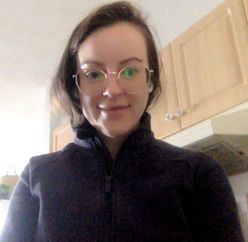
Janine M. Ray
Fielding Graduate University, Canada/USA
Interviewed by Polli Hagenaars
We are delighted to introduce one of our most active ICP student members. Janine M. Ray is a clinical counsellor and art therapist in private practice in North Vancouver, BC, Canada where she lives with her dog Rorschach. She is a 2nd-year Clinical Psychology PhD student at Fielding Graduate University. Janine works almost entirely with women, and her research has thus far focused on modern slavery and human trafficking of women and girls. Her dissertation focuses on transgender youth. She is interested in supporting gender diversity, sexual-preference minorities, borderline personality disorder, and minority stress.
Janine earned a Master’s degree in Fine Arts and dreamed of becoming a curator of an art gallery, but was disappointed with the red tape. She preferred helping people and pursued art therapy. At the ICP conference in 2021, she led the self-care art therapy session. She uses creativity to help women and girls express their feelings, process experiences, and to heal. She likes to use visual journals or journals that include visuals and diverse entry formats like pictures, poems, etc. Janine noted that “As many girls feel like their bodies are objects in other people’s worlds, and not in their own worlds, expressing themselves creatively can help to discern their wants and desires and disentangle that from the wants and desires of others. Women and girls continue to experience unique struggles across contexts, and it is important to support them in finding what is meaningful to them and to encourage them to pursue their passions.
“Being a Ph.D. student makes high demands, especially during Covid. Janine prefers qualitative approaches and especially mixed methods to enrich the data. Evidence-based interventions can be too reductionist. Borderline symptoms, for example, should be considered contextually and relationally while remaining aware of pathologizing clients. In this respect, the field needs to change the legacy of Newtonian thinking. Women and transwomen, and those with sexual preferences outside the norm, can help the profession to re-evaluate our approaches, so we can better serve humanity. The most important message that Janine would like to give to her colleague-psychologists: ‘collaborate internationally and stay connected, and broaden your horizon rather than remain siloed’. And, to future students: ‘psychology has so much potential to contribute, think of Covid, climate justice, and the alarming growth of human trafficking; psychologists can and should support the world.” Janine ended our lovely conversation by emphasising that she loves being part of the International Council of Psychologists.
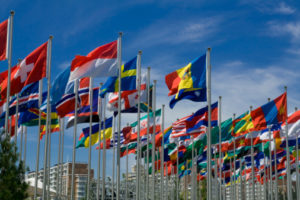
CoNGO
ICP is active in the United Nations NGO (non-governmental organization) community as one of the many thousands of organizations that bring the voice of civil society to UN deliberations. All of the UN NGOs are joined together by an umbrella organization, CoNGO (Conference of NGO’s).
Late last December, the Conference of NGOs at the UN had its General Assembly with the theme: “Shaping the Future: The UN We Need for the World We Want.” ICP attended, represented by Elaine Olaoye and Leslie Popoff (ICP reps to the UN) and Merry Bullock (ICP Secretary-General). Among the outcomes of that meeting were endorsement of a document “Compendium of Principles of NGO Good Practice,” election of two psychology organizations (IUPsyS and IAAP) to the CoNGO Board of Directors, and discussion of plans for civil society initiatives on racism & discrimination and other programs in support of CoNGO’s 75th anniversary.
PCUN
ICP is also a member of the Psychology Coalition of NGOs Accredited to the United Nations – PCUN. PCUN is the organization that plans the annual Psychology Day at the UN – this year is it April 21, 2022. See www.psychologycoalitionun.org. The theme is Building Hope: Contributions to a Roadmap for Climate Action. Individuals can register here
Report on an NGO-UN Consultation concerning Migration
Eva Sandis, ICP Representative to the UN
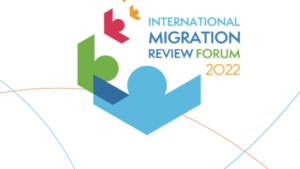 This March, about 150 representatives from Civil Society organizations (NGOs) at the United Nations took part in an “Interactive Multi-Stakeholder Consultation” focused on preparing for a forum in May (the IMRF) that will focus on implementation of the Global Compact for Safe, Orderly and Regular Migration (GCM).
This March, about 150 representatives from Civil Society organizations (NGOs) at the United Nations took part in an “Interactive Multi-Stakeholder Consultation” focused on preparing for a forum in May (the IMRF) that will focus on implementation of the Global Compact for Safe, Orderly and Regular Migration (GCM).
The meeting, moderated by Michelle Leighton, Chief, Labor Migration Branch, International Labour Organization (ILO), was dedicated to input by Civil Society stakeholders regarding the thematic priorities of the IMRF, and additional criteria for the selection of speakers and rapporteurs
Following welcoming remarks by H.E. Ambassador Abdulla Shahid, President of the General Assembly, and Antonio Vitorino, Director General of the International Organization for Migration (IOM), attended addressed thematic priorities and process recommendations.
Highlights of the thematic priorities include:
- A human rights perspective, and more attention to violence against migrants, including racism and xenophobia;
- A focus on recovery from Covid-19, especially on good practices adopted by Member States (MS) and their extension to the post-pandemic period;
- Labor rights, including the right to organize;
- Access to services regardless of migration status;
- Provision of legal identity for migrants;
- Saving lives;
- Progress on child rights commitments of the Global Compact, including no detention, and strong support for regular pathways and regularization as principal solutions to the vulnerabilities experienced by migrants
In addition to thematic priorities, there was a call for greater Civil Society input to UN proceedings for this and other important initiatives. There was support for a letter (which ICP endorsed – see here) calling for increased commitment to inclusion of civil society voices and access to the UN. Points raised at the meeting were to assure that Civil Society is fully involved in all IMRF events.
This included:
- Including Civil Society input on the Round Tables;
- Having more than one Civil Society rapporteur to bring highlight Civil Society messages from the stakeholder meeting to Governments attending the IMRF
- A right for Civil Society organizations to select their own representatives and rapporteurs
- A more active role for Civil Society in input into the Progress Declaration;
- Inclusion of the voices of children and youth.
Note from the Secretariat: For ICP and other organizations representing Civil Society at the United Nations, access and input have been affected by COVID restrictions (for example, for 2022, ICP is allowed only three grounds passes instead of the usual 6). In addition, because most meetings are in remote mode (e.g., Zoom or Webinar), there are few opportunities for informal meetings and information exchange.
Member Announcements
From Kelly O’Donnell: MCAresources@gmail.com
- Global Integrity Day (GID) 9 June 2022–“Integrity and Corruption in the Health Sector.” This year’s theme is Integrity and Corruption in the Health Sector. It is a practical example too of how critical thinking is needed to responsibly and relevantly engage in “health and wellbeing for all.“ We encourage you to check it out and participate! This crucial area includes multidisciplinary applications from mental health and psychology. Colleagues are welcome to participate by sharing ideas and core resources (e.g. human rights, moral development, and moral disengagement).
From Janet Sigal:
- 15th Annual Psychology Day at the United Nations: Building hope: Contributions for a roadmap for climate action. Website: https://express.adobe.com/page/Cnr9aeMWO5f09/. Direct Link for Registration: https://bit.ly/3JFLEyX
Member Publications
- Ahmed, S., Alarin, A., Thadar, H., Taskin, T., Vaddiparti, K. Villalba, K., Wang, Y., Ennis, N., Morano, J., Somboonwit, C., Cook, R. & Ibanez, G. (2022). Comorbidities among persons living with hiv (plwh) in Florida: A network analysis. AIDS Care, Feb 17, 2022. https://doi.org/10.1080/09540121.2022.2038363
- Cameron, E.C., Kalayjian, A., Toussaint, L., Cunningham, F. J., & Jacquin, K.M. (2022). Meaning-making predicts forgiveness as an indicator of posttraumatic growth with a stronger effect for natural disasters. Journal of Humanistic Psychology. https://doi.org/10.117/00221678221075910
- Cameron, E.C. (2021). First-generation graduate and professional students in the United States: A narrative review. In The Handbook of Mental Health Among Higher Education Faculty, Administrators, and Graduate Students. Teresa Heinz Housel (ed.). Lexington Press.
- Fatima, S., Fatima, N., & Muazzam, A. (2022). Assessing familial and social factors of life satisfaction in Pakistani transgender and non-binary individuals: implications for counseling. Journal of LGBTQ Issues in Counseling, 16(1), 67-85.
- Henson, A., Ruglis, J., Sinacore, A., Fitzpatrick, M. & Lanteigne, D. (2021). Self-compassion for youth in mall city centres: A school-based pilot project. Counseling and Psychotherapy Research, 21 (3), 714-728.
- Hofer J., Lehmann, M. Busch, H. & Menon, A. (2021). Associations between the implicit needs for affiliation and power and identity development in a sample of Zambian adolescents. Self and Identity, Aug 16. DOI: https://doi.org/10/1080/15298868.2021.1967189
- Koerner, N., & Morales-Cruz, J. (2021). Psychological distress and the COVID-19 pandemic: The important role of uncertainty / Angustia psicológica y la pandemia del COVID-19: El papel importante de la incertidumbre. Revista Puertorriqueña de Psicología / Puerto RicanJournal of Psychology, 32(1), 120 – 130.
- Sharma, S. & Nehra, A. (2021). Cognitive functions in the geriatric population. Research Anthology on diagnosing and treating neorucognitive disorders. in US Medical Information Science Reference/GI GLobal, p. 123-146.
- Soares, S. & Sidun, N. (2021). Women leaders during a global crisis: Challenges, characteristics and strengths. International Perspectives in Psychoogy: Research, Practice, COnsultation. 10(3), 130-137.
- Tan, J. C. H. (2021). A sociocultural approach to understanding suicide among Inuit: Issues and prevention strategies. In H. Moeller & R. Schiff (Eds.), Health and healthcare in the Canadian north (pp. 255-273). University of Toronto Press.
- Veitch, J.A., O’Connor, D.B., Shullman, S.L., Tan, J., Zalaquett, C.P., & Koerner, N. (2021). Inspiring psychologists to respond to global issues. Psynopsis: The Magazine of the Canadian Psychological Association. 43(4), 20 – 21. https://cpa.ca/docs/File/Psynopsis/2021-Vol43-4/index.html#p=20
- Wainwright, T., deMatos, M. % Salmela-Aro, K. (2021). Psychology and the environmental crisis. European Psychologist, 26 (3), 155.158.
Member Talks
- Bajpai, S. (2021). Aging and mental health in a global context. [Talk] PCUN.
- Bullock, M. & Zakowski, S. (2021). Adopting a human rights framework for psychological research: implications and implementation. International Congress of Psychology, virtual.
- Cameron, E.C., Cunningham, F.J., Adeji Baffour, S., Toussaint, L., & Jacquin, K.M. (2022). Mental health implications of COVID-19 in Ghana: Trauma and posttraumatic growth across four tribal communities. [Talk] Society for Cross-Cultural Research annual conference February 2022, San Diego, CA.
- Cameron, E.C., Ray, J.M., Ogilvy, J.H., Cunningham, F.J., & Jacquin, K.M. (2021). Climate change, governance, and human exploitation: An ecofeminist perspective. [Talk] Conference on Environmental Psychology November 2021, Lillehammer, Norway.
- Hagenaars, Polli (2021) Introduction to the start of the Human Rights Section of the National Academy of Psychology (NAOP). Online talk.
- Koerner, N. (2022, March). Tratamiento de la preocupación y la ansiedad crónicas mediante el fortalecimiento de la tolerancia a la incertidumbre [Treatment of chronic worry and anxiety by strengthening tolerance for uncertainty]. Invited speaker, Simposio Internacional de la Federación Latinoamericana de Psicoterapias Cognitivas y Conductuales [International Symposium of the Latin American Federation of Cognitive and Behavioral Psychotherapies].
- Muazzam, A. (2021). Mental Health in an Unequal World: What Brings us Together and What Sets us Apart. Panel discussion member for The Department of Applied Psychology at GCWUF, on 13th October 2021.
- Josephine Tan served on the Scientific Committee for the South East Asia Indigenous Psychology virtual meeting, and promoted the ICP in a plenary presentation Journey from Western to Decolonizing and Indigenous Psychology.
Member Awards & Honors
- Fiona J. Cunningham was recently appointed as the provincial representative for Newfoundland and Labrador for the Canadian Psychological Association’s Section on the Psychology of Women (SWAP).
- Erinn C. Cameron was awarded Fielding Graduate University’s Dissertation Award for her dissertation “Stigma, Female Identity, and Cannabis Use for Women with Chronic Pain.”
Meet the two student Representatives to the Board

We would like to give a warm welcome to our newest student representative to the ICP board of directors, Vera Luckgei. Vera studied psychology with a focus on health psychology at the University of Vienna, Austria and graduated in 2018 with her Master’s thesis on “Feminist Psychology in Vienna”. Currently, she is a Ph.D. candidate at the Faculty of Psychology in Vienna, conducting research on feminist psychology and therapy in the 1980s and 1990s in German-speaking countries. Since October 2021, Vera has worked as research associate in the DFG – research project “Women in de-ranged Realities” at the Institute for History and Ethics of Medicine at the University of Heidelberg, Germany. From October 2020 to October 2021, Vera Luckgei represented the International Council of Psychologists at the NGO Committee on the Status of Women at the United Nations Office at Vienna. She is also a member of Professor Alexandra Rutherford’s multimedia platform Psychology’s Feminist Voices and co-organizes the conference “Queer- Feminist Perspectives for Psychology.” Vera joins Erinn C. Cameron as a second student representative to the ICP board of directors.
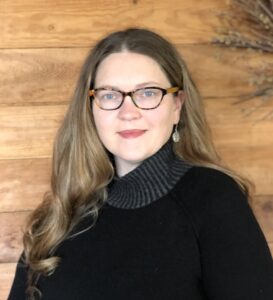
Erinn C. Cameron joined the ICP board as a student representative in 2021. For the past two years, Erinn has been a member of the ICP conference planning committee, including chairing the Climate Justice symposium and Human Rights Observation. She is a first-generation university student and a 4th-year doctoral candidate in clinical psychology at Fielding Graduate University. She will complete her doctoral clinical internship at the University of New Mexico Health Sciences Center 2022-2023. She currently lives in the islands of the Puget Sound off the coast of Washington, USA, with her husband and four daughters. Her ongoing research and clinical work focus on human rights, gender inequality, human trafficking/modern slavery, women’s health, and climate change. In addition to her work with ICP, she is active with APA Division 52 (International Psychology) where she serves as a board member and inaugural member of the APA Division 52 International Environmental Justice Committee. She is currently an adjunct faculty member at Seattle Pacific University where she teaches in the Department of Psychology, Family, and Community.
[Editors’ Note: Members were invited to submit personal pieces related to International Women’s Day. The two pieces included here profoundly reflect the diversity of women’s experiences across the globe. We thank the authors for sharing their work with ICP!]
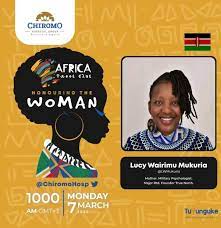
Mwikali Wakes Up
Major (Rtd) Lucy Wairimu Mukuria, Founder True North Kenya
2022 American Psychological Association International Humanitarian Award recipient
I had called to check in on them as I often did for True North clients. She is the wife of a military veteran. They had been married for 32 years. Unlike him, it was she who always had a working phone. Even if all she would do is receive calls and not make them because she did not have the airtime since she had exhausted all payment options; okoa jahazi, uwezo tarrif and fuliza option. This one characteristic of their shared co-existence was one of many that set the precedence of the nature of their relationship. In this instance, it meant if you were looking for him, the best avenue of success was through contacting her as the first and most viable option. Ultimately, this begged the question whether her phone was ever really hers. Was this not the most symbolic indicator of the codependent nature of their relationship? What would it mean for their relationship if she for once told him that if he had to communicate with those looking to connect with him, he needed to do so through his own phone. The direct translation of that being that he had to be responsible for his own external communications. If he lost his phone in a drunken stupor, he would be off communication till he replaced it. If he lost it in a fight with so called bloody civilians occasioned by words he judged as demeaning to his status as a warrior trained to kill in the defense of his country, he would be off communication till he replaced it. The wider implication of this being that she was stepping back from holding his water for him. Whom would she be now?
Mwikali’s identity as a human being was solely based on how she interfaced as good wife to her husband of 32 years and a mother of four children. Three boys and one girl. The idea that she was anything more than that or, different from that had never crossed her mind. Till now. In order to get her attention, most people would call out to her and in her direction saying,” Mama Mehut.” Her husband too was among this list of the many who called her by her motherhood status. Others, her peers mostly, would call out, “Mrs. Mwendwa Wakwa.” Her husband by name was Mr. Mwendwa Wakwa. So she was called with reference to her marital status. Thus as I pressed the phone against my ear I heard Mwikali sigh and vocalize that she needed psycho-therapy and so did her husband. “ I do not know who I am.” She cried out. “Who am I?” She pressed on. “What am I doing with my life?” She questioned in a tone to suggest just how much of a void she felt in her existence. I wondered what had precipitated this sentiment. “It was listening to myself speak about my life.” I responded by saying that she had always spoken about her life and questioned how come it was different this time around. “Not to people who do not know me.” She swiftly responded. We sat in that statement for a minute in silence. “Have I normalized suffering, dysfunction, and misery?” She posed after asking this question in Kikuyu language. She continued, “He uria mundu angerea thena na thena ucio ukuruo niukiretie mehaka. Riu ginya mundu tanie ng’aga kumenya na meshira makwa magakururu meh on survival mode all the time.” She was beginning to question what she had tolerated in the name of maintaining her status as a good wife of 32 years and going strong. A good Christian who will go straight to heaven if Jesus makes his second coming right this instant. And, a good mother whose children are by extension a reflection of their parents in all ways. “Acha Wairimu, mundu uyu onake niekwendwo athi counseling.” And there it was. The shoe finally dropped with her realization that she was not equipped with the tools to heal a war-wounded soldier although he was her husband of 32 years. I pressed the phone closer to my ear as I acknowledged everything she was saying with, “Mhh. Ahhh. Mhhphh.”
My work with military veterans has given an insight into the dynamics of relationships with their better halves. This is because the idea that marriage completes two people who by their independent selves are inadequate is still a commonly used reason to marry and get married. More often than not, through a process of socialization via subliminal, modelling and educative messaging that is heavily informed by patriarchy, women are groomed to give up their identity as human beings and come submit to the definition of their identity from their husband. When the time comes for the man, the husband, the military veteran to struggle with his identity due to work related stress or and war wounds, the women assume the role of being emotional, financial, physical, and intimate punching bags as he is mired in the miasma of fear, emasculation, indignity, lack of identity and painful emotions.
In my approach, I reject the enabling of kowtowing by the womenfolk as is common practice in situations of domestic and gender-based violence. God forbid that in the process of self-protection and preservation the victims, mostly women, fall out of favor with the society. You see we have created a society where the set standard is the suffering of women to the limits of the end of the world as long as she does not expose the true nature of her unloving relationship. If there was an opportunity to present prizes, the Kenyan society would highly reward a dead wife who tolerated suffering in her marriage more than a wife who chose to get divorced to preserve her life. The stigma and discrimination is unreasonable. From family and social circles all the way to work and religious settings. The schools her children attend are also grounds for punishment as a divorced woman. The treatment is as subtle as failing to receive an invite to a family event because divorced women are ever on the prowl to remarry so as to once again, be complete! Wives in distress receive the message loud and clear. In the end, most comply and society does reward them. The skewed perception that it is shaming the man and exposing him to ridicule although it is his actions in question, not hers is a painful reality. Our traditions and culture have put the burden of protection on the woman. Meaning, she has to protect herself from her husband by reading into and interpreting his moods, discerning when to be silent and compliant. We celebrate her silence as wisdom on her part unlike the absolute terror she is truly living in.
As a mental health care provider, I have observed high levels of anxiety, stress, and stress responses in the wives who experience this situation as normal married life. In my work, trauma-informed therapies that focus on fragile masculinity, as well as emasculation of the male identity, has placed the duty and responsibility of safety of the women where it belongs, with the men! These trauma informed therapies are tailored to aid mirror back to the men their underlying running emotion that shows up in mean and aggressive behavior. In between the processes, the men are readied to take responsibility and be accountable for their feelings, especially their feelings. This is because men are also victims of patriarchy since it is demanded that they suppress their feelings. Healing of the male woundedness is a critical piece of the safety for women puzzle. In the end, refining the male identity and calling out positive masculinity is the goal. That is how to keep women safe. The healing of our wounded men, without centering their masculinity, is the way to BREAKING THE BIAS. Our pursuit of a world free of bias, stereotypes and discrimination must include addressing the depth of patriarchy in our daily living. That way we might just one day have a world that is diverse, equitable and inclusive.
At the end of our conversation, Mwikali concluded that it was best they both begin to take their counseling sessions separately. She scheduled her session for the next day.
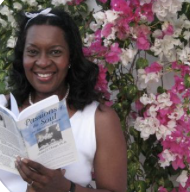 We the Women in Antigua and Barbuda and the World
We the Women in Antigua and Barbuda and the World
Elaine H. Olaoye, Ph.D., ICP Representative to PCUN, Public Engagement Associate, Heroic Imagination Project; Director, Brookdale Positive Psychology Center
Antigua
Barbuda
Redonda
Emerald jewels in the sapphire waters of the Caribbean-Atlantic Ocean
Home for the Siboney Stone Age people
As far back as 1775 BC.
These tropical ecological structures
Limestone, volcanic, and coral wonders
Are geological-historical sisters three
Antigua and Barbuda in Pleistocene times
(That’s about 9,600 BC)
Were joined (Olaoye 1995)
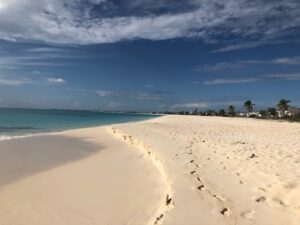
Women around the world and across centuries have been the nurturers and caretakers in almost all countries and cultures. Yet women in carrying out these essential and compassionate tasks and duties are too often seen as less than and therefore deserving of less or little recognition and compensation. Women, however, have continued, nonetheless, to demonstrate their competence in making significant contributions in all times and circumstances.
This article focuses on sharing some of the domestic and literary work of women in the Caribbean islands of Antigua and Barbuda in varying circumstances. The two major opportunities that will be examined to show how women continue to contribute their strength and brilliance wherever the need arises are: First the restoration of life and community in Barbuda after Hurricane Irma devastated the island in 2017 and the second will be some literary contributions in the age-old genre, poetry, from as far back as the 1700s during slavery.
Even though these islands have been twinned in name and in presentation to the world, they have very different socio-cultural and geographical histories. The almost complete destruction of Barbuda while Antigua remained largely untouched by Hurricane Irma served to make the differences and conditions between the islands, starker and larger.
Following the almost complete flattening of homes and buildings in Barbuda, 95%, by the named hurricane, Barbudans were forced to relocate to Antigua. Families there took Barbudans in. The women in Antigua took on the caretaking duties that made these refugees comfortable.

Barbudan women, in turn, were among the first to return to their island and secure what was left of houses and belongings after major debris had been cleared away. Many of them were the heads of households. Their efforts were very much aided by the support of the United Nations Development Program (UNDP). The UNDP had conducted a Post Disaster Needs Assessment (PDNA) that showed very clearly women were the backbone of the Barbudan society. So money for tarping houses, most had become roofless, was granted readily under Sustainable Development Goal, (SDG) #17, and women were able to get to work on cleaning up houses and buildings and making them habitable for those who were had to return.
Barbudan women employed entrepreneurial skills and set up culinary services, serving hot meals not only for locals but also for visitors and workers visiting the island. I was able to observe much of this firsthand as part of delegate visiting Barbuda in July 2019.
Women in Barbuda were also supportive of and active in the politics of Barbuda. They served at two levels: They were the workers that maintained the Barbuda Council. And Barbudan women were also active and vocal members of the Council itself. Asha Frank (2019) was an outstanding and well celebrated Council member and is dedicated to maintaining Barbuda’s relative independence. The brain drain, in Barbuda, is one of her concerns. UNDP funds helped with the rebuilding of the Hanna Thomas hospital where many women worked despite the sparse social activities and limited shopping and other services.
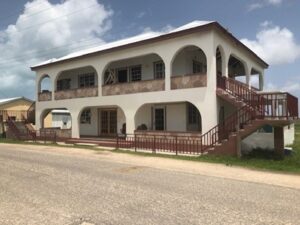
Barbuda has a very unique sociocultural history growing out of a unique form of slavery that was a function of special colonial powers granted to an Englishman, Sir Christopher Codrington by the crown. In addition, Barbuda has a unique geography: Although it boasts some of the most enviable beaches in the world, it also has a treacherous coastline which gave Barbuda an exciting and illustrious history of piracy, carried out by slaves under the leadership of their owner. Barbudans were rewarded on his death with the land being granted to them as a community not as individuals. One of the results of this is a degree of social bonding and pride, that kept people on the island feeling loyalties that rival those of blood relations maintained often by generations of Barbudan women. This has created some very thorny financial, intergenerational, and political conflicts. (Henry, 2019).
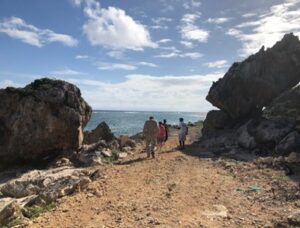
The continuous history of women’s contributions of significance in Antigua and Barbuda is not limited to domestics and politics. Women in this country also have distinguished careers in the literary arts. We will limit our focus to some poetic works.
The earliest woman is Rebecca Freundlich Protten (1739) born in 1718 in Antigua, later auctioned in San Tomas, Dutch West Indies. She became an activist, her signature is attached to petitions sent to the Queen of Denmark, requesting protection for the African peoples in the Danish West Indies.
She wrote a prison release letter in 1739, which showed her fortitude:
“…I have spent 15 weeks in prison and enjoyed sweetness in prison, we were brought 7 times before the court…”
Mary Prince (1831) was born in Bermuda (1788ca -1833) but was sold and brought to Antigua. She worked for Thomas Pringle who was the Methodist secretary for the Anti-Slavery Society and Prince was able to pen her memoir, which was republished in 1987. In her poetic narrative “On Being Sold as Child Slave”, she wrote:
“The black morning at length came; it came too soon for my mother and us. Whilst she was outing us on the new osnaburgs in which we were be sold, she said, in a sorrowful voice,( I shall never forget it) “See, I am shrouding my poor children, what a task for a mother!”
Antiguan-born Eileen Hall Lake’s (1938) volume “Fountain and the Bough” was published by Charles Scribner & Sons, Co. New York in 1938. It received favorable reviews. The depth and sophistication of her work can be felt in one of the pieces published by Scribner:
“ The Shape of Chaos
The nerves proclaim disaster when it comes :
Before the sickening mind can realize,
Stretched tight for turbulence like drum,
They clamor certainties that paralyze
The agile thought, intent upon escape
From that fatality assuming girth,
Forced in a moment to define the shape
Of chaos – heaven omitted, a new earth.”
The last early woman writer is Hilda MacDonald (1957) born in Antigua in 1833, here’s her pastoral poem that celebrates the tropical paradise that is Antigua:
“Dawn
Like giant brooms the palm heads sweep
The star-dust from the dreaming skies
As through half-opened gates of sleep
Bird carols of the morning’s rise.
Where sea meets heaven in misty blue
The dawn fires leap through rosy spray.
And armed outriders of the morn,
Flash burnished spears in bright array
Westward their wind-whipped coursers sweep,
Hailing the shore to greet the day,
Then turn and toss their flying wave
In rippling silver over the bay.”
We turn to a sampling from recent women poets, not only those currently living and writing in Antigua but poets from the diaspora: We have Althea Romeo-Mark working in Switzerland, Dr. Valerie Combie in St Croix, Elaine Olaoye in New York. Jessica Ormond Brann who was born in French St. Martin but now call Antigua home and Linisia George, who was born in Guyana but migrated with parents to Antigua as well as, Germaine Owen, M.D. who published her first volume of poetry in Victoria, Canada.
Jessica Ormond Brann (2012) writes deftly of the confidence of youth, as it manifested itself in Antigua but could be matched in so many countries around the world:
“Nothing Says it all”
“ I was born at 18
Life was restarted at 18
I planned it all at 18
I did nothing at 18.
Nothing was proven
Nothing was known
Knowledge is power
And I’m considerably weak
Yet so strong
I am at my peak.”
Linisia George (2012), an excerpt, makes observations that pack a punch and resonate far beyond Antigua shores:
Guns for our Souls
I’ll give you a gun
And take your soul
I’ll bury your life
And add your heart to the toll…
Television raising kids
The internet reading them bedtime stories
Continued cycles of neglect
Packaged in reject
You get what you put out
And suffer for what you held back
Watch me take your soul
Watch me take your soul….
Athea Romeo-Mark (1957) a prolific poet published in Europe as well as Liberia, paints a sketch of who are,
The Nation Builders
Brown men crowd an island hilltop,
voice French-Creole and Spanish,
not the English patois of generations
assembled there before them.
belittled by nicknames,
lynched by contemptuous stares,
condemned as job snatchers,
pounced on by immigration
they are herded into vans, shackled like cattle.
Shrouded in life’s hardness,
They shrug off morning’s crispness,
Ignore the later sun’s searing sting.
Hungry eyes straining downhill,
Scout for trucks crawling up.
Like mongoose out to kill,
they charge the first that slows down…
Men scramble, shove,
become acrobats, settle into place
speed to hard work and low pay.
They are builder of island nations.
They are fathers of leaders who see
With the eyes of the disenfranchised.”
Listen! Doesn’t Germaine Owen, M.D.(2003) make music happen in:
Compelling Forces
The hurricane comes
beating on the galvanized roof
as if it were a hand
playing steel drums.
A compelling music
the rain makes – forceful, lulling
we are comforted despite
such notes of fury.
Even though the focus of this paper is on events and contributions of women from Antigua and Barbuda, the responses and resilience of these women, despite inequity and other challenges, can claim to have wide resonance, much of which can be felt in many places in the modern world.

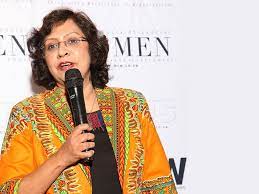 Prof. J. Anitha Menon, Professor of Health Psychology in the Department of Psychology, University of Zambia Chairperson for University of Zambia Committee on HIV and AIDS, Founding President of the Psychology Association of Zambia
Prof. J. Anitha Menon, Professor of Health Psychology in the Department of Psychology, University of Zambia Chairperson for University of Zambia Committee on HIV and AIDS, Founding President of the Psychology Association of Zambia
Me too…
Woke up with the rain assaulting her skin,
Prisoner of her own body,
That no longer felt her own,
Forcibly manoeuvred by a stranger,
Invaded by a foreign hand,
Without being given a say.
Her mind numbed to the realm,
Body’s sensation heightened beyond control,
A simple touch from a loved one,
Could trigger those memories,
Severing ties with even those she loved.
How many others she doubted?
Have faced this before her,
Or is it her alone,
In this horrendous path.
She came across numerous,
One in mini skirt pondering if it was her fault,
One in a veil shrieked that it also happened to her,
One in a diaper could not say a word.
She will stand high and proud,
What happened was never her fault,
But it is HE who will live a discreditable life,
Knowing everyday of committing a blatant act.
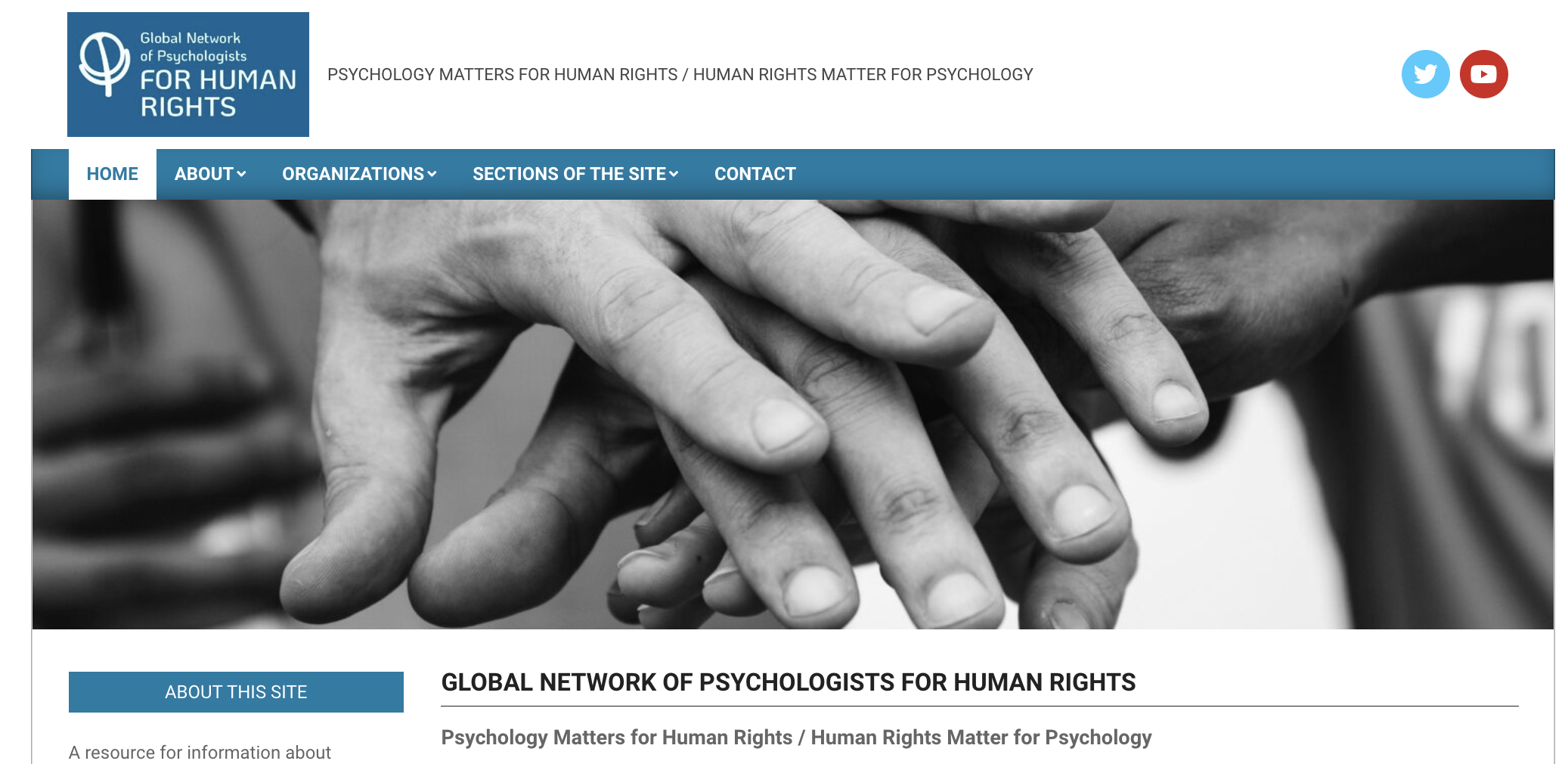
Subscribe to the Global Network of Psychologists for Human Rights
receive the monthly Bulletin, participate in webinars,
contribute to the global voice!
Dear Colleagues,
I hope this message finds you well. I am very excited to introduce you to the new format for our Newsletter and to the publication committee. Erinn Cameron, Swati Bajpai, Polli Hagenaars and I have teamed up to revitalize the newsletter and to solicit content that is more diverse. We hope that you will find the new format and content interesting and informative.
Consistent with previous newsletters we start with the President’s Message, a report on ICP at the United Nations and ICP news and activities, as well as member news, announcements and comments. In addition to the regular features, we have added a section called Member Spotlight where we introduce to you Sharon Coen (a new member) and Janine Ray (an active student member). We also added a “Student Corner” where we introduce to you Vera Luckgei and Erinn C. Cameron (the student representatives on the Board). We hope that by introducing you to members we are encouraging a sense of community.
Next, we highlight Member’s Voices through special interest pieces. We invited members to submit personal pieces related to International Women’s Day. The two pieces included in the newsletter reflect a diversity of women’s experiences. Finally, we added an Art and Poetry Corner, highlighting our member’s creativity.
We hope you enjoy the new format with its diversity of content. We have tried to find a balance between providing information and offering some creativity. Enjoy!!
All the best,
Ada
